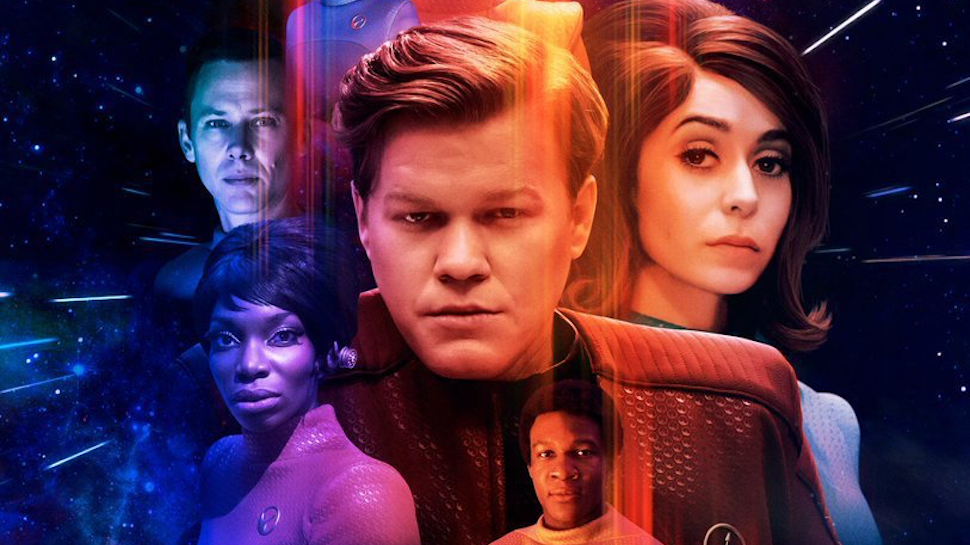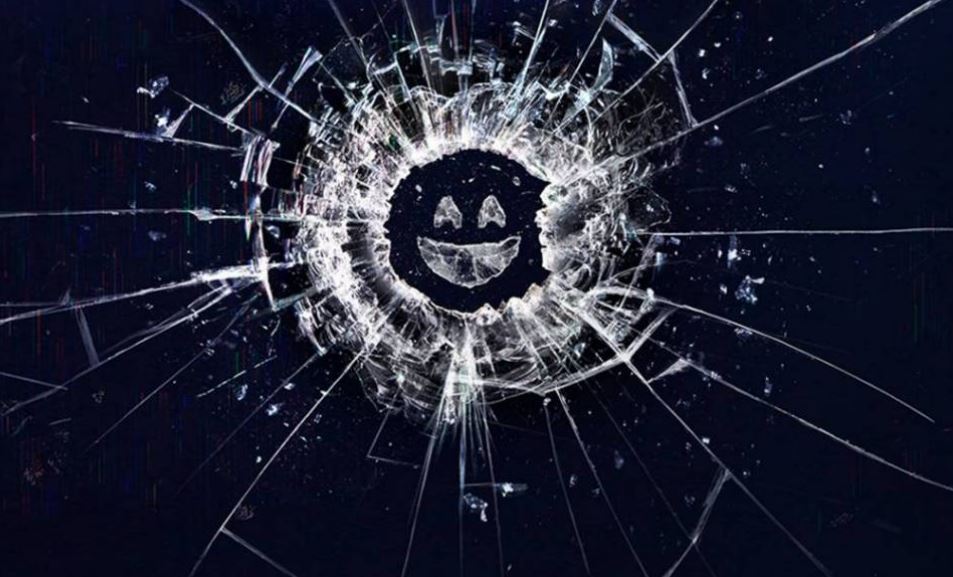Anyone who has watched an episode of Black Mirror will know its premise – it’s an anthology series exploring the perverse and dark paths technology can lead us down. The series is not saying technology is inherently bad, yet sometimes, it can be a vehicle that amplifies the twisted sides of ourselves. Of course the series is in some ways hyperbole, but as we shake our heads at the decisions these protagonists make, we also recognise a facet of ourselves present in these scenarios, and comfort ourselves with the denial that we aren’t like that.
However, the series seems to lose its skepticism when it comes to the subject of love – at least, that’s what viewers think. This is because romantic love is an ideal lauded by society, which explains the hype surrounding “San Junipero”, though this is also due to its delving into LGBT themes. In “San Junipero”, our main characters have discovered each other through a virtual reality world. While their bodies are limited by old age and severe injuries obtained from an accident, their minds are free to roam and experience what their bodies cannot. They get back their youth, they even fall in love. But when it comes to choosing to stay there forever and forsake life on earth as well as a possible afterlife, Kelly (Gugu Mbatha-Raw) can’t bring herself to make the same decision Yorkie (Mackenzie Davis) is making. Yorkie never experienced a proper life because her accident confined her to a bedridden life. It is the opposite for Kelly, who was married with a husband and a daughter, both of whom have since passed on. The afterlife could offer her a reunion with both of them, so could she give that up for a simulation?
She does choose to be with Yorkie in the end, and her decision leaves us all teary-eyed, because love has triumphed. Technology brought together two people who would have never met in real life, and gives them the platform to fall in love. Belinda Carlisle’s “Heaven is a Place on Earth” sounds out as the episode ends, and our last glimpse is a data storage facility, a reminder that it’s not really Kelly and Yorkie in the virtual world, but merely a copy of their consciousness. Of course that’s endlessly debatable philosophically – a lot of Black Mirror episodes deal with how these copies have agency and humanity, so Yorkie and Kelly’s experience transcends the rudimentary virtual reality we currently deal with.
This might not be a popular opinion, but I prefer “Hang the DJ” to “San Junipero”. It captures the real life aspect of dating quite accurately. Amy (Georgina Campbell) and Frank (Joe Cole) are looking to find “the one”, each possessing a device which selects their dates for them, and allocates the amount of time they spend with each person. They like each other, but can only spend 24 hours together, so they reluctantly part ways after their time is up. Afterwards, we see Amy and Frank spend years with people they don’t like, all because a device told them to. This is a common thing in our dating world, with people staying together and settling for each other, even when it’s clear their hearts aren’t in it. But Amy and Frank have not forgotten each other, and in the end, risk it all to be with each other, even though the system has not matched them together.
However, this risk-taking is what the system is counting on. Love means doing whatever it takes to be with the one you love. It is once again an ideal. At the end we discover that Amy and Frank aren’t really Amy and Frank, but copies of them. The real Amy and Frank have been matched by the app which uses such simulations to determine compatibility. The ending mimics the one in “San Junipero”, where it isn’t really Amy and Frank risking their lives to be with each other, but copies of themselves. Still, the generally happy quality overrides the usual dark sentiment of the series. When it comes to love, technology seemingly becomes a bridge, allowing us to be the best sides of ourselves. This would be our takeaway if we were just take these episodes at face value. But that is not the message they carry.
Let’s look at it this way, why did Kelly make the choice she did and choose to stay with Yorkie? Love can be a strong motivator, but so is fear. She was afraid of death and what awaited her in the afterlife. There is such uncertainty in the face of death: maybe she wouldn’t be reunited with her family, maybe there is no afterlife. So she chooses the option where she can be young and beautiful, and spend her days with someone she loves. It is not Amy and Frank who risk it all for each other, but rather it is the simulations of them. Would they be brave enough in real life? Maybe, but we will never know. Technology makes us cowards. Instead of facing or dealing with something in the flesh, we let Sims and our screens do it for us. Take the current climate on online dating for example, where apps like OKCupid, Bumble, Coffee Meets Bagel, or Tinder do the hard work for us. We fill in the basic information of who we are and what we are looking for, and these apps put their algorithms to work to find people who would work for us. There is no longer a need to put ourselves out there, or to dive into awkward social situations to meet people.

We see this in other episodes in Black Mirror as well. In “USS Callister”, even though Robert (Jesse Plemons) is a genius and could very easily thrive in the real world if he made an effort, he prefers to invest his time in his own virtual world, using it as a way to live out his warped fantasies. For the episode “White Christmas”, Beth just blocks Walter out of her life, instead of being truthful to him and telling him that it wasn’t his child. This results in him spending years gazing at the blocked-out version of who he thinks is his child, only to realise the devastating truth when Beth dies. She used technology has a way to shield herself from the condemnation she knew she would face. In “The Entire History of You”, we see how technology becomes a crutch for love. A couple makes use of past memories of themselves making love to get off in the present. Upon catching a whiff of infidelity, Liam (Toby Kebbell) obsessively delves into their past to seek the truth, instead of talking and communicating with her. “Arkangel” charts the destruction an overprotective parent can wield, whose actions are defended because it was done in the name of love. When given the gift of technology, it often becomes the albatross around our necks. Mere using eventually turns into abusing – nothing is spared from this, not even love.
We already see glimpses of this in real life, where social media platforms have given us greater capacity for connection, but with greater ‘open-ness’ also comes the ease of cyber-stalking and spying into your significant others’ life far more than necessary. There are apps in the market that grant parents control over their child’s phone, allowing them to lock the phone remotely, and also block material on the internet they feel is not suitable for their child. But hey, relax, real life isn’t an episode on Black Mirror – at least, not yet. Fingers crossed that we get to a more socially mature space when our technology does catch up with the likes of what we see in Black Mirror, though I am not holding my breath.
Some of the coverage you find on Cultured Vultures contains affiliate links, which provide us with small commissions based on purchases made from visiting our site.

